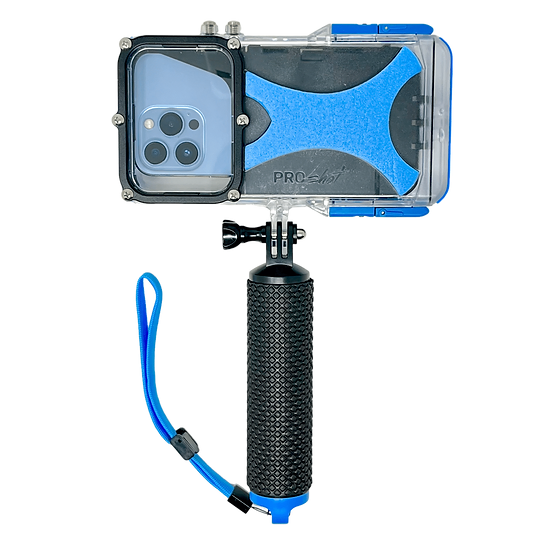In the quest to provide affordable professional services for small businesses, Emily Gerber started Gerber Business Solutions. For the past eight years, Gerber Business Solutions has served as a business consultancy firm helping small businesses in the areas of marketing, process, and technology. Our conversation covers how to outsource some processes of small businesses and how to build a business structure and automation for growth.
TRANSCRIPTION
Introduction
I really identify with Simon Sinek in his book about the Infinite Game, if you start a big project, you’ve got to have a reason to do it. Everybody does whether they realise it or not, and that infinite game is the purpose for doing all the work.
Dzifa Mensah- Hi There, Welcome to the eCommerce A-Z podcast, where we teach you how to start and grow a thriving eCommerce business.
In this episode, we interview Emily Gerber. For the past eight years, Emily Gerber has run the Gerber Business Solutions, a business consultancy firm dedicated to helping small businesses in the areas of marketing, strategy, process and technology. Now she believes strongly that small businesses are the bedrock of the economy. Our conversation today covers the best business practices to achieve goals, how to streamline your business structure to decrease mundane tasks through automation and so much more.
I am your host for the show, Dzifa Mensah, stay tuned.
Dzifa Mensah- Hi Emily, good to hear from you.
Emily Gerber- It's great to be here, thanks for inviting me.
Dzifa Mensah- Thank you. I hope you are doing well
Emily Gerber- Yeah, you know the world is always changing and we had some earthquakes yesterday. But we are doing good. We are adapting right.
Dzifa Mensah- Everything going on right now is quite scary you know, but we are still positive about it that everything will be fine eventually.
Emily Gerber- Yeah. There is a lot of scare tactics going on but then I think if we just realize that we are all in this together that will help everyone be able to have the best future.
Dzifa Mensah- That’s true. I totally agree. So, have you been working from home, self-quarantined and isolated?
Emily Gerber- Yeah, my family and I took a vacation back east. We were in New York city, Cleveland, Illinois, we have been to all of those places. We’ve been to Missouri and we came back and as soon as we came back we self-quarantined. People in Utah, where I am located they didn’t think that it was that big of a deal. But we saw how it can become a big deal over night with this illness, so we are just self-quarantined. My husband and I both are working from home. He is in cloud architecture, and I am running this business(Gerber Business Solution) and we have the added responsibility of being able to help our kids with their schooling other than wasting time. So, it’s kind of like we have our own little company here at the house. And it’s kind of a neat thing to see actually in this time.
Dzifa Mensah- I can imagine, that’s cool. Why did you start Gerber solutions?
Emily Gerber- That’s a really good question.
I have always liked to organize things. I have always liked to help people find the solution that they need. I don’t always feel like I am that solution. I feel like there are a lot of people that are qualified people that have solutions. But then they think people just need someone to talk things through with, especially small business owners. You asked me previously why we work specifically with small business owners. They typically are more genuine. Some come from big business backgrounds and they just want to make a difference in the world. So, it is just not that they don’t know how to do the thing that they started doing as a company, but they are having to do it all on their own. And that is where we come in. We like support them. We like them to be in charge of the decisions that is why they opened their business. But we want to be there to support them with technology insight, strategy, marketing and process. And hopefully that will help them make a difference in the world. That is our bottom line; helping small businesses make a difference in the world. They have the dreams and they are the bedrock of our company, of the United States and many countries. So, we just want to give them the right tools so that they can succeed and make the difference that they started out to make in the beginning.
Dzifa Mensah- What type of businesses have you worked with so far or do you usually work with?
Emily Gerber- We have always wanted to not limit the industries that we work with. I feel like there is a lot that we can learn from each other. There is a lot that I have learned from the different industries that I have worked with so we don’t limit. Some of the typical companies that we have worked with are all the way from construction companies, wellness coaches, dietary supplement companies, outdoor game builders. I have a Germain translator client right now, an HR consultant. We even have a refugee nonprofit organization and the one that you and I met is the Brazilian restaurant in downtown Provo. There are a lot of things that are similar, business to business, sometimes we adapt and take advice on how that industry works well for them, what they have noticed. But we also have a lot of experience that can help and benefit them to build the structure that will help them to be successful.
Dzifa Mensah- How important is building a structure for small businesses?
Emily Gerber- Small businesses, a lot of the times, they don’t lack experience at all but they have that heart and that drive and they just need a structure to be put in place. Because a lot of the time they feel that either they are an artsy type of personality, or they are super rigid. But they are starting out and they are having to do all that on their own so they don’t feel like they have the support that they need. Putting a structure in place as far as we meet with them and I help them to identify a strategy that will help them to succeed and work toward the goal that they want to achieve. And so that strategy creates a structure for them which gives them milestones that will help them see that they are becoming successful and things will become cleaner. I always liked the image of gears clicking together. If they can see that there is all of these gears, we help them put all these gears in place. And then they can run their systems more smoothly, they can amplify the speed or the rate at which they are able to do business and they can increase their growth and revenue as well as their exposure for the difference that they want to make in the world.
Dzifa Mensah- Let’s say that I am an eCommerce business owner and I deal in women fashion items, dresses, shoes and bags and I come to you, what’s the process like?
Emily Gerber- First when we meet with the client, we always talk to them about mission, vision. I find that it's really shocking. Even businesses that have been in business for a while sometimes they don’t have a solid grasp on what the vision is for their company. And so, we kind of work with them, and those things are always changing too. So it's hard to have something set and still all the time. I mean, you want to be flexible, so we work with them to identify what their mission and vision is for their company and then we identify the steps that we need to make in order to get there. With that eCommerce fashion company, we would say okay what makes you different from all the other fashion eCommerce companies out there, and then that develops into their brand. And that develops into the messaging that we put forward, that develops into the type of website feel, the user interface that they have, and we can either set those pieces up for them. Or they can pick and choose and their company can be in charge of pieces and our company can be in charge of pieces and we can just act as product manager or coach to touch face with them from time to time.
Dzifa Mensah- Is there like a time frame, do you have a specific time frame you use when working with clients or it can last as long as they want it to last?
Emily Gerber- Ideally we like to go in, create a strategy, touch base with the client month to month to see how that plan is doing. If they are in charge of all the work, if their company has administrative and design and website people then what it looks like is we are just checking up to see that all the pieces of the strategy are being carried out, and to do some more research and to identify what pieces might be helpful as time goes on. Some clients take us on for the work behind it as well, we can certainly do that. We have a team, we have a graphic designer, we have a technology solutions expert, who work on integrations and web coding. We also have another strategist. We have a social media person. So, it can really be anything that they feel comfortable with. When we take on the work, we like to take it on for a short term, like six months at a time. By that time, it gives the company a chance to hire somebody, and we can even help with that process. We can help to hire the right person and give them advice on the type of qualifications that person should have, and we can train that person and then we can step back and allow them. Because really, we are all about self-reliance. We want that small business to rely on themselves, we want to support them through their growth, because our main thing is to help many different companies. So, we want to go in, set up a strategy and then give them the support that they need and touch base with them from time to time. And what it looks like is different from every client, we have some that take us on for six months, and then we have some that I have met with for probably six years so ...
Message from sponsors - The eCommerce A-Z podcast is brought to you by Kudobuzz Review. Over 70% of online shoppers refer to reviews before making a purchase, according to them reviews serve as social proof and aids them in making purchase decisions. Collect reviews and display them on your website to convert your visitors to buyers. Join over 25,000 online merchants in the Kudobuzz family and start boosting your sales now. Kudobuzz review app is available on Shopify, Bigcommerce, Wix, Weebly and Wordpress. Check out kudobuzz.com for more.
Dzifa Mensah- In crafting the mission and vision of the brand, what would you say to be the key element to be considered during that process.
Emily Gerber- In creating the mission and vision, I really think that for me personally, my strategy comes down to a more genuine approach. You can say I want to have seven million followers in the next year. You can have all these numbers. But I think that’s the most important vision, the one that the company is going to buy in, the team members of the company, everybody is going to buy in more when they help to create the vision and also it’s a vision that means something. So, a company that is doing something to help the world succeed that’s to tie in the real personal feelings into a vision statement, that’s the ideal thing. Just like I really identify with Simon Sinek in his book about the Infinite Game, if you start a big project, you’ve got to have a reason to do it. Everybody does whether they realise it or not, and that infinite game is the purpose for doing all the work. If you don’t have a purpose, then you are just a monkey at a keyboard and it could be a robot doing it. But if you have a purpose, then you are up at night trying to solve the problem. And this is what a lot of small businesses owners, I mean all of the ones that I have met, they are all like this. They have a heart and passion for what they do. Identifying and trying to help them just to put it into words is kind of like what we try to help with. And then we find out that from that point forward, they really have, like they see the vision of what they have created, and they are able to work hard, to put those pieces in place, and work on the processes. A lot of the times people don’t like to work on the process pieces but as they see the vision and we touch base with them and we show them the progress that they made along the way, those process pieces they can tell our gears that are starting to flow a lot better and it makes them excited to do the work.
Dzifa Mensah- What’s the key element in starting a small business
Emily Gerber - Definitely, I don’t know anybody that starts a small business without passion. I know that there are some but you could work for a large company very easily. I think that working for someone is the easy way out and if you are trying to start a small business and you don’t have passion, it's going to be a long hard road. Most small business owners, number one, for instance Refugee Choir, the nonprofit that started, that’s a huge passion project for her. All of these different things, you can see a benefit, you can see a need and you can want to fulfill it in order to get money but I think that most people that start small businesses are doing it because it is a passion of theirs. I totally think that that is the number one thing for small business owners.
Dzifa Mensah- Let’s talk about marketing for small businesses, eCommerce merchants specifically, what are your biggest marketing tips for them?
Emily Gerber- So I know this might sound strange, but we have a lot of different types of clients. Some that are completely involved in social media, some that never seen it and some that it's just really overwhelming and they are getting enough product sold or services sold that they don’t feel that that’s a big deal. But social media is more than just hits and likes. It’s a place where you can kind of journal your experiences through blog articles and also it’s a good place even if you are not popular online because you are more of a physical place, it’s a good place to be creative and show true credibility. So I think that the biggest thing is to be consistent with social media even if you feel like you have said the same thing over and over, realising that not everybody has heard it just because you have said it, to be consistent and to not give up on marketing. Marketing is your voice. It is how you show that you know what you are talking about. It’s how you show that you are unique, that your product is different, or your service is different than what other people are doing. And it's also your voice as well.
Dzifa Mensah- So I remember our blog post with you, you touched on authenticity being one of your hallmarks when dealing with clients and your customers. Can you delve into that?
Emily Gerber- So authenticity. It’s funny because in this world and I think right now, in this coronavirus, I think everybody is starting to be a little bit more genuine. But I felt like before there was so much social media, so many voices out there that you are not going to win if you post seven times a day and you replicate and you analyse the backend and you post things out. These can definitely be good if it is the right business and industry and you are at the right point in your plan. But I think more than that, people are kind of starting to push back on a lot of those automated processes. I think they have a place and tying in the right mission and vision which helps with the messaging that is going out and identifying the right timing, helps to be able to utilise the automation tools in a way that feels and is authentic. People will stay with companies a lot longer if they feel they have an authentic brand that they really do care about their customers; they’ll be there for longer. In the world of analytics that we are in right now, where a number of likes, a number of views and all of these things are so critical, people aren’t analysing. Yes, you might have thousands and millions of followers, but are these people genuine followers. Are they people that you actually know? Are they really intrinsically connected with your company because you care and they know that you care about them? So at some point, there is a threshold that we need to cross where we utilize the technology that is available but also make sure we have a genuine message. That way we are not scamming people with the wrong message. We are segmenting so that we can make sure that the people that came to the conference we just were at get a special message for them. Some of these things take a little bit more time but if you are willing to do it with less of an audience that audience will stay with you for longer. That’s not a new idea. It’s just kind of a different idea when we are faced with all of these likes and comments and things like that. It’s hard to see beyond the numbers. I think for my perspective, looking beyond the numbers is a critical thing to make sure the messaging is what you want and that the people are responding in a way that feels like, yes, you really get them as a company and yes, that they really get you as a customer. That’s where the relationship is the strongest and you are going to see them for the long haul.
Dzifa Mensah- You have worked with business owners from different industries, what’s the underlying similarities with all the businesses you have worked with despite the differences in their industries?
Emily Gerber- Their similarities are all that they have a project or a company that’s a passion of theirs. I think that the things that they need help with from time to time that seem to be similar are things like strategies, consistent messaging, consistency in processes, automations. A lot of times, they have been really successful running grassroot types of organizations. And then they move up to a growth period and then they don’t know how to make their social media work better for a different audience or they don’t know how to own the value chain side of things. They don’t know how to scale up with that because they haven’t done that before. There are little things like email addresses. If they don’t have a tech person that’s aware of how to do each of these processes then they do need a little bit of support. I have a great article, if anybody visits my website, it’s a short video attached to a blog article, called the Gerber Condo method of organizing your business. And it just goes through different steps like quarterly review, cleanups, get rid of projects that aren’t making you money or that you don’t feel any joy about. And I think that once people simplify the plans a little bit or the strategy a little bit, then they can put more time and money and resources into things that are working well that they feel good about. So, it’s just about simplifying and streamlining and holding unto the parts of the business better, making you happy and able to give you the time and resources you need to run the company.
Dzifa Mensah- Alright now let’s talk about outsourcing, any business using your service is a form of outsourcing right. What would you say businesses should look out for before they outsource projects or part of their business operations?
Emily Gerber- Well if they are outsourcing to us or taking on projects with us, these are just things that would be great like dream wishes. But if they aren’t outsourcing to us, it would be great to follow the Gerber condo method of organising your business where you look through and streamline. So you have a really good idea of the direction you want to go. You get things like passwords ready. You get people onboard. If you have a small business, you let them in on what you are doing and that helps the teamwork. When you are outsourcing something that is critical information that needs to be transferred from the company to the people you are outsourcing. And there needs to be time for it. It would be great if you could stop your clock and just focus on, like in a retreat. You can business on pause and have a business retreat where the company that you outsource to is able to spend that time just with you to really get things moving in a quick way. But if you can't do that and you are doing it at the same time, that’s what most companies do, then just make sure that you have time to meet with the people you have outsourced the work with. If they can get their answers right away, then you are going to get, as a business owner, you are going to get the changes made faster. I think that’s common knowledge in any business setting with managers and the different pieces of the company departments that you are working with. So not just count those team meetings, but make sure that they are effective but make sure that people are prepared ahead of time and that they can get their questions answered.
On the side note, I really like to follow scrum methodology where we meet quickly, frequently. We meet once a week, we talk about the road blocks. We are very honest about where we are at. We have a project map. We break things down into specific segments that take 20 to 30 minutes. So, from a product management and strategy standpoint, I think it is a good idea to get used to quick but effective meetings so that you can move forward fast.
Dzifa Mensah- You talked about scrum, I wanted to talk a little bit more on that because I think that it is a very useful method for small businesses, eCommerce businesses, but a lot of them are not implementing that yet. So, could you hammer on it a bit more? How do you go about it with specifics for us?
Emily Gerber- For any small business owner that isn’t aware, I love project management. I went into school, I guess I should have just started introducing myself a little bit. I have a Business Administration degree and a Minor in Sociology and I just recently finished my MBA, it was a project competency face MBA both at Westminster College here in Utah private school. And as I was going through school, like I said I have always enjoyed project management. I just joined a meetup that was all about scrum at Nelson Labs here in Utah. And it was really mind blowing to just be able to write down (I have some of that in The Gerber condo article too) everything that needs to get done and then go through the list again, delete some of the things you don’t need and identify the skills of the team that you have. So small business owners sometimes in the beginning, they have whoever will do the work, and as they are able to scale up, they can take a look at things and give promotions and they can also hire better talent. So,having everybody on a project board, we use a tool called Asana and they have a free version. I put all my clients on there. I use it as my project board when I talk with them. Since we were a virtual office so we typically, if we are in Utah, we can come and visit them, but we meet with clients all over the US. We’ve done business with clients outside of the US as well. It helps to have a virtual project board where we can show them the strategy. There are these little cards that say scrum methodology. Each project is a little car, and then you open up the card and then you can identify the little pieces that go with that project and assign it to someone. You can also assign due dates and there are check boxes. So there is like a journal for where you are at. That is really key, especially if you can’t meet in person. Right now with Corona, a lot of people are trying to figure out how to work remotely. This is a really good tool for something like that because meeting quickly, answering questions, making sure that you keep up on records where you are at on that project and communication is huge for making sure that you stay on top of that project and that people understand what they are supposed to do. Sometimes the best way to do that is in a quick short meeting. We do video web chats on Google Hangouts. Sometimes the best way is on Slack. We have a Slack Channel which is a message board where we chat back and forth with each other. And then the clients can see where they are at because we update the project for them. Anytime they are wondering where the project is at, they can just look at it. They don’t have to contact us unless they need extra clarification. So as far as scrum goes, I have identified a lot of things from scrum that can be adapted into the small business world. I think that it does work very well for small businesses if they stick to it and stay consistent.
Dzifa Mensah- Talking about apps you mentioned Asana. What are your go to apps apart from Asana or in addition to Asana.
Emily Gerber- Typical but a lot of people use some of the apps. But I feel like there are industry standards for small businesses. They are really helpful and they have at least cheap to free betting, and you can always upgrade without losing your information. So, for the process chart I like LucidChart. All of these have online versions. I think everything should be in the cloud and updated so that many people can see the same document at the same time. There are a lot of different reasons that you would save documents but for me for a lot of our clients, this is what we do. We do Google Drives for uploading documents. We do Slack, for communication. A lot of small businesses like the CRM Hubspot which connects directly to their email. We use Canva for creating easy designs. We have a graphic designer who has worked in the advertisement agency for twenty plus years and so she can do that. But we use Canva for social media because it is really easy to see what the design looks like and then go over it with the client and make changes right there instead of having to talk to the designer and have it changed. Going back and forth is a lot of time. So that’s a good one for that. And Hootsuite for scheduling communications. We have like a whole bunch of other ones. We really like small businesses that want to run on their own. We really like recommending Wix because anybody can set it up. We can set it up and make it look good and turn it over to the business owner and they can make changes whenever they want. They are in charge of their own websites which really is nice for small businesses. We have a whole bunch of them that we use. Those are probably the ones just off the top of my head.
Dzifa Mensah- We are going to end our interview now, but two questions before we end. The first one is what books would you recommend every small business cum eCommerce entrepreneur to read?
Emily Gerber- I pretty much talked about anything from Simon Sinek. I just like to stay up on current things. I am a member of a few LinkedIn groups that I like to keep up to date on. I think meetup is a good place to find new information. And talking to people who have done what you have done, finding a mentor, a coach. Those are really great ways to find success in the business world.
Dzifa Mensah- What would be your one advice to small business owners?
Emily Gerber- I think we talked and hit on it a lot. Finding a really good team and not necessarily just saying yes to the first decision that comes along but saying yes to the right decision. Even if it takes a while to find you a good fit, with a team member or a good fit with a product that you want to use, just being patient but not being afraid to make changes.
Dzifa Mensah- Being patient but not being afraid to make changes. It was really good talking to you Emily and your experience with all the small businesses you’ve worked with really came to play in this conversation and I really enjoyed it very much. I am sure our listeners will love it as well.With all the tips that you have dropped, from every question that you have answered, especially scrum, I think that it is one of the things that small businesses can use to manage themselves and the condo method as well. Thank you so much for this. Is there anything else that you would like to say?
Emily Gerber- Thank you so much for your time and all you do, and all the small business owners out there who are working hard on their dreams, thank you so much for all the hard work you do. You guys are amazing.
Conclusion
Thank you for listening to our podcast, we hope you enjoyed it as much as we did. Please subscribe to our podcast. Leave a review and tell your friends about it on social media. As always, take care of yourself and stay safe. My name is Dzifa Mensah, see you next week.









